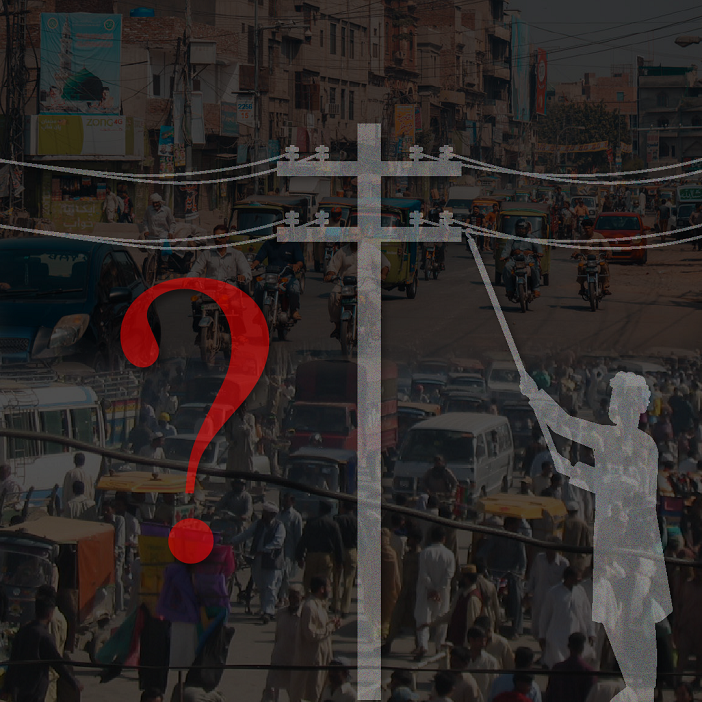Muhammad Rafiq Rehmani lives in Baghbanpura, Lahore. In June, Lesco (Lahore Electric Supply Company) sent him an electricity bill of over Rs73,000 though his bill never crossed Rs18,000 mark in the past.
He says there is a huge difference in the reading of the meter and the received bill. He is repeatedly visiting the sub-division office for rectification but the staff insists on turning the bill into installments for payments instead of correcting the bill.
“Lesco officials say that my extra units will be adjusted in the future bills. But what about my payment of thousands of additional rupees because of the slab and tariff difference due to the extra units?” he asks
Besides Muhammad Rafiq, thousands of citizens are concerned about inflated bills. They go to the electricity distribution companies (DISCOs) daily to register complaints. The majority of them have reported extra units added to their bills.
“DISCOs shift the burden of their line losses to us. We, who regularly pay our bills, are also suffering the consequences of electricity theft,” complains Rafiq.
Although the prime minister took notice of the overbilling and ordered an investigation, yet most of the consumers do not seem to be benefiting from it.
According to a report released by the National Electric Power Regulatory Authority (Nepra), DISCOs witnessed more than 16pc line losses during the year 2022-23.
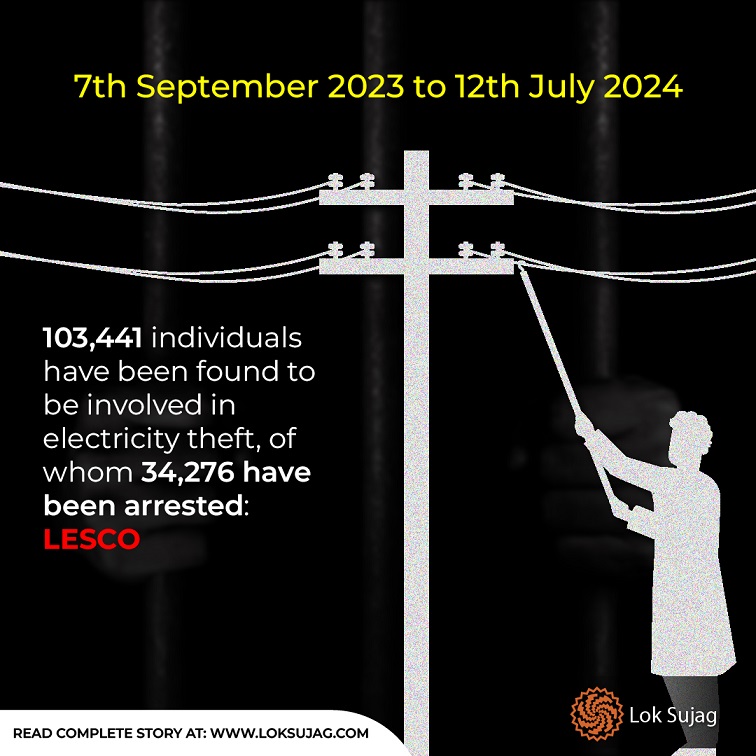
This loss was 4.27pc more than the limit allowed by Nepra, which is up to 12.21pc. The main reason for line losses is power theft.
Punjab has a relatively lower power theft rate as compared to other provinces. Line losses at Lesco were reported at 11.30pc against the eight percent allowed limit. Gepco (Gujranwala Electric Power Company) faced 8.61pc line losses, Fesco (Faisalabad Electric Supply Company) 8.84pc and Mepco (Multan Electric Power Company) had 14pc line losses.
A report reveals that the purchase of more than 133,144MW out of which 5,523MW of electricity was lost whose value exceeds Rs166.36bn.
Lesco lost more than 860MW electricity worth about Rs23bn.
Distribution companies also faced a shortfall in the bill recovery targets, which could recover about 86pc. Lesco had a recovery of about 94pc and a shortfall of about six percent.
DISCOs do not admit passing the line loss burden to the consumers. However, they admit that the possibility of a ‘slight error in the meter reading’ cannot be ruled out.
A Lesco spokesperson says the meter readers take readings on different dates in particular areas, comprising a total of 30 days. The complaints about adding extra units have declined after the electricity bill has a picture of the actual meter reading on it.
“Sometimes, the meter readers, being unable to take readings on the scheduled date because of public holidays or emergencies, take readings either before or after the due date. Consequently, the units for the 30 days are adjusted based on the readings for the remaining days. This method is called 'pro rata’,” he says.
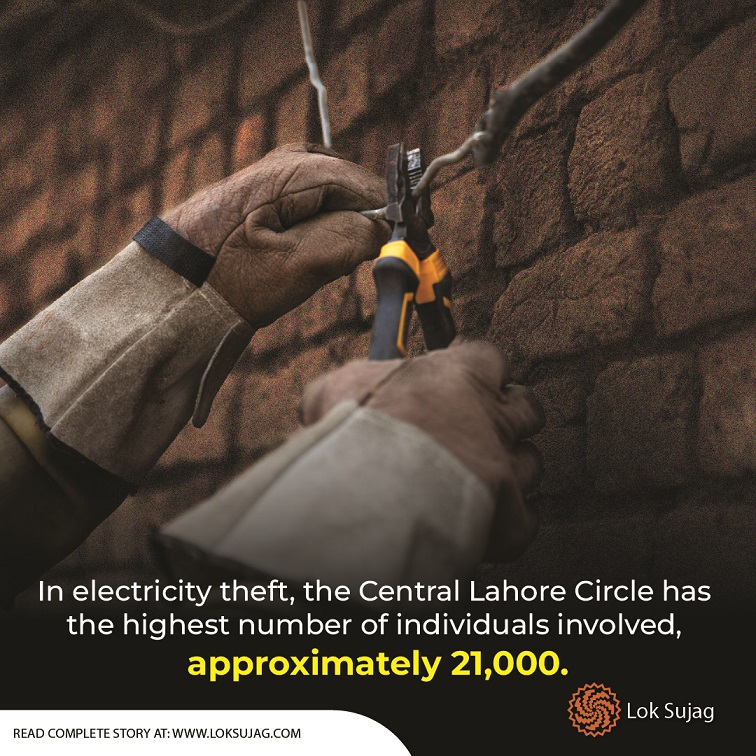
However, many people consider the pro rata system as the main cause of the inflated bills.
Journalist Shahid Supra, who has reported on the energy sector for years, explains that electricity bills had a column for average usage in the past. In this column, the meter reader would record an average reading based on the user’s earlier electricity consumption.
“However, this practice was scrapped and the electricity bill duration was reduced to 30 days after Nepra adopted stricter rules for meter reading. Moreover, it was also made mandatory for the distribution companies to display a photo of the meter reading on the bill.”
He says it is often challenging for DISCOs to take 30-day readings of all customers. This is solved by the introduction of the pro rata system.
“If the 20th is the set date of meter reading in an area but the reading is taken two days before or after the scheduled date, the ‘pro rata system’ will calculate the average units of the two days, which will be entered in the bill accordingly. However, people have many complaints due to the reading picture displayed on the bill.”
Some consumers have objected to the implementation of a pro rata system. This is because the number of units increases and they lose their status of ‘protected consumer’. Moreover, the electricity tariff also increases due to slab change.
Naeem Ahmed, a resident of Chauburji, says that there are two electricity meters in his house, one in his name and the other in his father’s name. Both these meters are used in separate parts of the house.
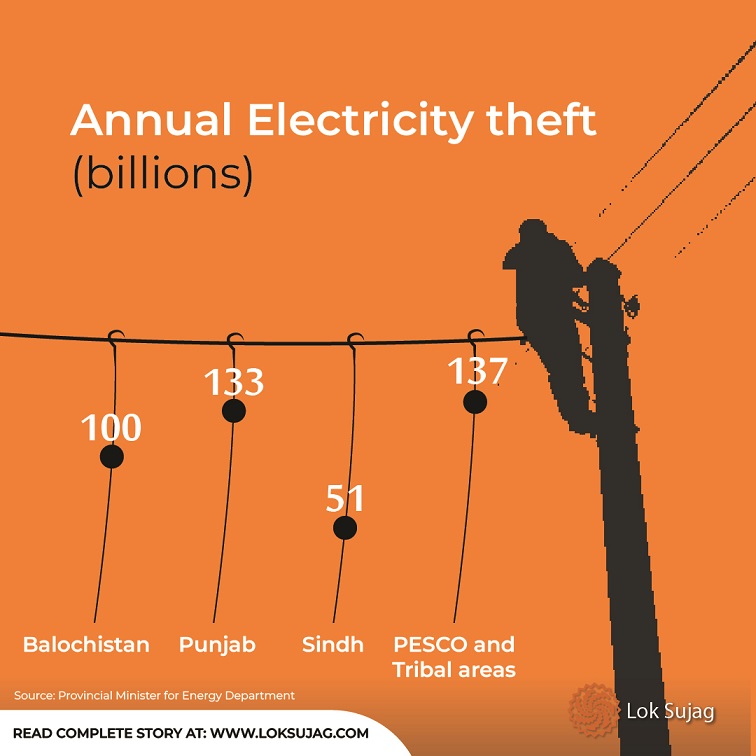
“We were billed for 201 units of one meter and 213 units of the other while the units used in the printed images on both the bills are less than 200. The pro rata system has removed us from the protected category,” he adds.
On the other hand, power theft is also increasing with increasing electricity prices. According to a Lesco spokesperson, 451 people were caught stealing electricity during the operation on July 12. Twenty of them were arrested while cases were registered against 126.
Eleven commercial, 17 agricultural and 423 domestic consumers were found involved in electricity theft, resulting in detection bills of 425,377 units. These detection bills are worth Rs14.3m.
The spokesman informs that 134,441 suspects were involved in power theft between Sept 7, 2023, and July 12, 2024, of which 34,276 were arrested. During this period, about Rs4.14billion detection bill (fine) was received for electricity theft.
Eight Lesco officers and employees were arrested while 97 were suspended for abetting power theft in about a year.
According to Lesco reports, most people (about 21,000) involved in power theft were from the Central Lahore Circle. Congested and suburban areas of the city have the highest number of complaints of power theft. In many border area villages, electricity is openly stolen and power supply to such places is severed, yet the cycle of electricity theft continues unabated.
Lesco sources reveal that power theft also occurs in many government offices and some city plazas in connivance with Lesco employees and backing of the influential political figures.
Also Read
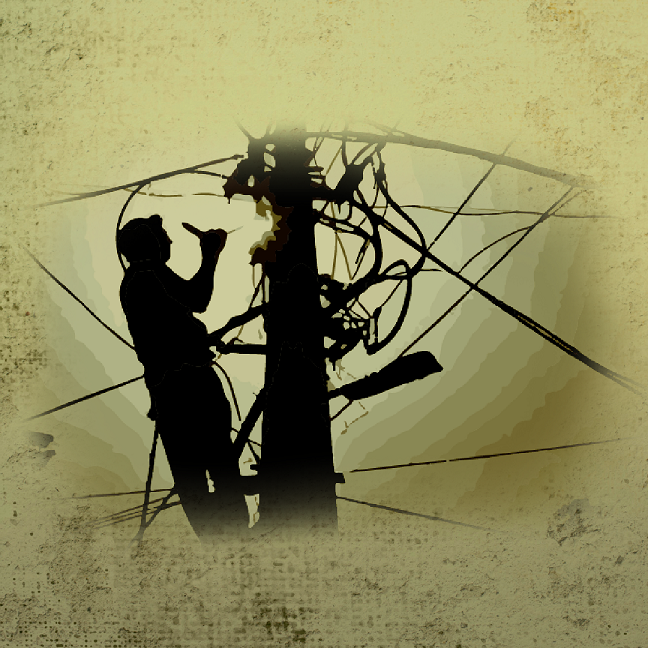
Why are consumers paying for line losses and electricity theft?
The federal minister of energy admits the annual power theft of about Rs600bn, which eventually burdens poor bill-paying consumers. People protest against the electricity thieves due to which cases of staff violence have also emerged.
He further mentions the government’s priority is to stop the power theft which has reached Rs137bn in Pesco (Peshawar Electric Supply Company) and tribal areas, Rs51bn in Sindh, Rs133bn in Punjab and Rs100bn in Balochistan.
Former senator Mushtaq Ahmed says electricity theft can be prevented by bringing down the electricity prices. “Why would people steal electricity if they get it at an affordable price?” he asks a pertinent question.
“Supply of free or subsidised electricity to the government employees, judges, and military officers should be stopped immediately. Furthermore, markets should be opened at 8am and closed early at night while all additional electricity taxes and contracts with the IPPs (independent power producers) should be cancelled. These actions will eliminate the deficit in the power sector.”
Ahmed believes that if the cost of line losses is assigned to the relevant sub-division’s executive engineer and SDO (sub-divisional officer), rather than being passed on to the consumers, electricity theft would end within two months.
Published on 20 Jul 2024
